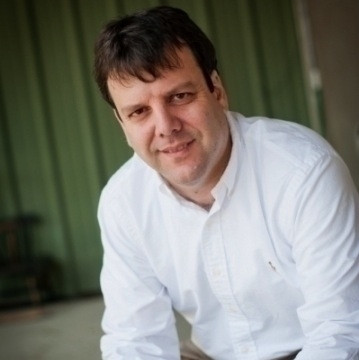Horowitz: Obama Visit Puts Exclamation Point on New Era for US-Cuba Relations
Tuesday, March 22, 2016
President Obama’s historic 3 day visit to Cuba, culminating with a nationally televised speech to the Cuban people today, puts an exclamation point on the unfolding new era of relations between United States and Cuba. The first U.S. President to set foot on Cuban soil since Calvin Coolidge in 1928, Obama is meeting one-on-one with Cuban President Raul Castro, touring businesses and churches, watching an exhibition baseball game between the Tampa Bay Rays and Cuban Nationals, and meeting with dissidents, among other activities. Accompanying him are 11 American CEO’s, signaling an opening up of commercial ties, and other elected officials, including Senator Whitehouse and Representative Cicilline.
This Presidential visit, follows up on the official restoration of diplomatic relations between the two nations several months ago, The unfurling of the American flag over the American embassy in Havana—upgraded from a diplomatic mission-- marked the end of 54 years of a failed and outdated policy of attempting to isolate the Communist state, only 90 miles off the Florida coast.
During that time period we normalized relations with other Communist nations, including China and Vietnam, but our policy from Cuba, a vestige of the Cold Ward, which ended more than 25 years ago, remained in place largely because of the disproportionate influence of the first generation of Cuban Americans who fled Cuba in the wake of the revolution and settled in large numbers in South Florida.
GET THE LATEST BREAKING NEWS HERE -- SIGN UP FOR GOLOCAL FREE DAILY EBLASTFiercely anti-Castro, strategically located in an important swing state, historically overwhelmingly Republican in voting preference and always willing to contribute in large amounts to favored candidates and causes, this resourceful, entrepreneurial and successful generation of Cuban immigrants amassed political power far exceeding their small share of the overall US population.
As a second generation of Cubans mainly born in the United States, however, comes of age and mortality takes its inevitable toll on the founding generation, attitudes in the Cuban community have shifted markedly. This created the political opening ably seized by President Obama to go in a new more positive direction. This new direction is supported by the overwhelming majority of the American people and by even larger majorities in Latin America, according to public opinion polling.
While our new policy towards Cuba is already achieving results, beginning to widen the Cuban private sector and seeing an increase in online connectivity, Cuba remains far from a Jeffersonian Democracy as evidenced by the continued harsh treatment of anyone who is openly critical of the regime. The break up of Sunday’s peaceful ‘Ladies in White’ demonstration and the arrests of its participants, only hours before the President’ plane landed, left a strong visual impression that highlighted an undeniable underlying reality.
Still, as Ben Rhodes, Obama’s deputy national security advisor, asserted, “We believe that by opening up space-opening up space for exchange, dialogue, connectivity, entrepreneurship, exchanges with civil society-that will help empower the Cuban people-to continue to build a future of greater opportunity.”
As Obama fully recognizes, this will in all likelihood be an uneven process with set-backs along the way. But we are now on a better path—one that is over time ilikely to bring major positive changes to Cuba. It is also important to recognize that the policy advocated by critics of the President’s opening to Cuba—continued isolation-- had a more than 50 year record of failure.
The President’s policy better positions us to influence the future of Cuba and brings the added benefit of increasing our positive standing in Latin America, a major area of economic growth and opportunity, where our outdated policy was an irritant to the other nations in the region.
Let’s give it the time it needs to work.
Rob Horowitz is a strategic and communications consultant who provides general consulting, public relations, direct mail services and polling for national and state issue organizations, various non-profits and elected officials and candidates. He is an Adjunct Professor of Political Science at the University of Rhode Island.
Related Articles
- Horowitz: Paris Shakes Up Presidential Race
- Horowitz: National Polling Misused to Eliminate Candidates from Tonight’s Debate
- Horowitz: One Ugly Week on the Home-Front
- Horowitz: Progress on the Climate in Paris
- Horowitz: Obama’s Sunday Night Speech; A Good Beginning
- Horowitz: Trump’s Ugly Nativism Runs Counter to Most Americans’ Views
- Horowitz: It’s Essential to Make Contraception Readily Available
- Horowitz: Pope Francis and China - A Great Week for the Climate
- Horowitz: Another Public Mass Shooting - It’s Time to Do More Than Nothing
- Horowitz: 5 Things to Watch For At Tonight’s Democratic Presidential Debate
- Horowitz: It’s Time for Chafee to Get Serious or Get Out
- Horowitz: Paris Climate Agreement Puts the World on the Right Path
- Horowitz: Speaker Ryan is Off to a Great Start
- Horowitz: Scalia’s Death Ripples Through Presidential Race
- Horowitz: New Hampshire Primary Preview
- Horowitz: Jeb Bush - A Class Act Leaves the Race
- Horowitz: Trump’s Refusal to Criticize Duke & KKK Part of a Disturbing Pattern
- Horowitz: Romney’s Trump Take-Down is Having an Impact
- Horowitz: Raimondo is Putting Rhode Island on the Right Economic Path
- Horowitz: President Bloomberg; Stranger Things Have Happened
- Horowitz: 5 Reasons for New Year’s Optimism
- Horowitz: Obama Moving on Gun Safety the Only Way He Can
- Horowitz: A Welcome Discussion - Republican Presidential Candidates Poverty Forum
- Horowitz: John Kerry - A Consequential Secretary of State
- Horowitz: Trump’s Failure to Accept Any Responsibility Disqualifies Him



